Understaffing a growing concern at Vancouver schools
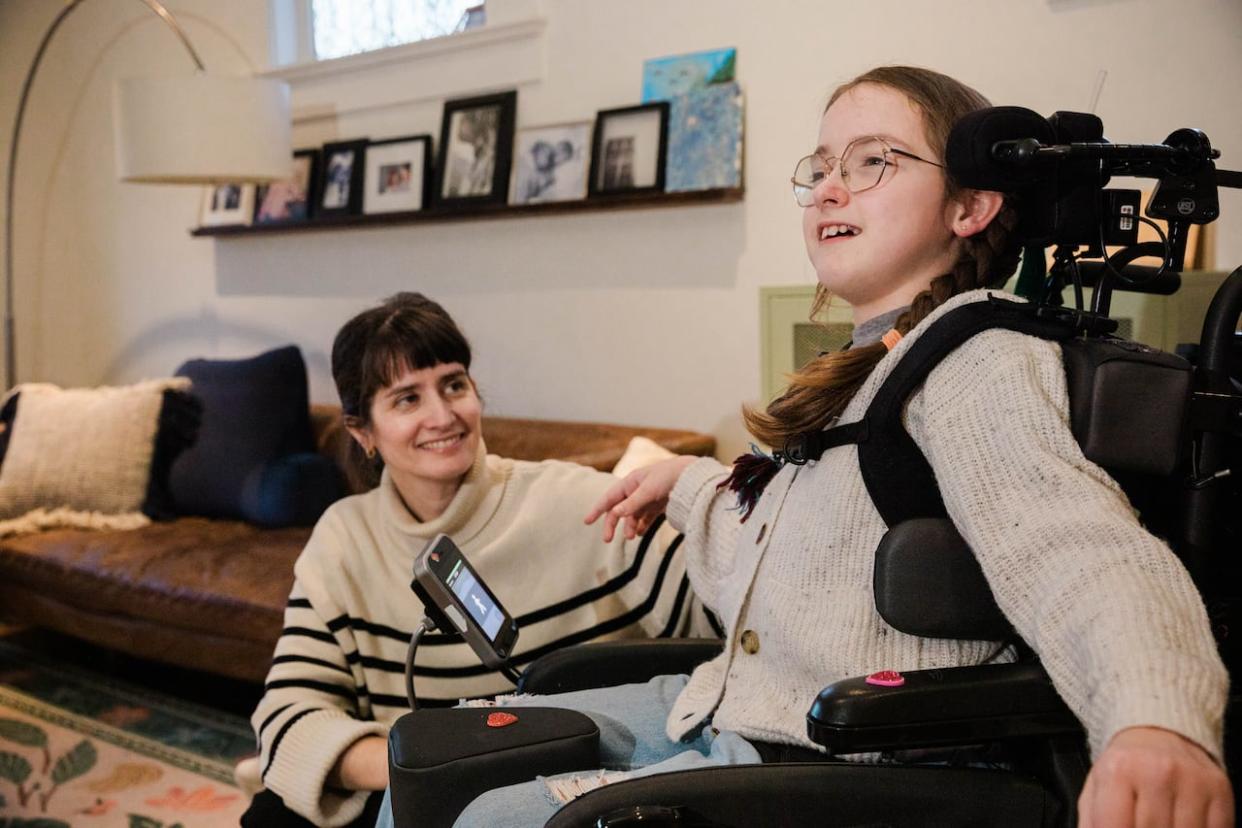
Vancouver parents and educators' unions say understaffing at the province's second-largest school district has kids with special needs getting less help and workers stretched thin.
Mira Oreck's son is a Grade 2 student in East Vancouver. He is neurodivergent, she said, and because he doesn't have adequate support from student support assistants (SSAs), school is so anxiety-provoking he sometimes can't attend.
Oreck says when an SSA at his school is ill and remaining staff are dealing with heavy caseloads, there might not be anyone familiar with her son's needs. She says this is leading to near-weekly absences.
"I want there to be more support workers so that families don't have to fight day in and day out to have their children receive the support that they have a right to have," she said.
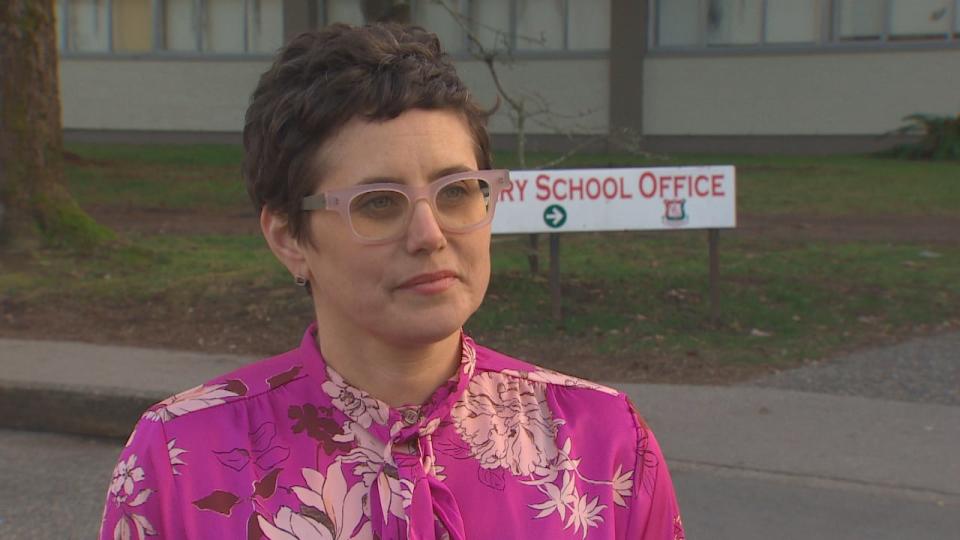
Mira Oreck says her son is often away from class because the school doesn't provide the support he needs. (Jim Mulleder/CBC)
Hilary Thomson's Grade 5 daughter, Cora, has cerebral palsy and uses a wheelchair and walker.
Thomson says in the fall, Cora was sometimes in her wheelchair all day because SSAs trained in moving her between the two devices weren't backfilled when one was sick. Thomson says this impacts Cora's independence and physical fitness.
"The people that work with my daughter are amazing. They're doing a wonderful job," Thomson said. "I think the district as a whole, though, needs to come back and support their educators, support their students and really make a commitment towards inclusion."
Thomson is with the Vancouver District Parent Advisory Council (DPAC). She says they've heard from around a dozen parents, some representing parent groups, who are worried about staffing and its impacts on kids with special needs.
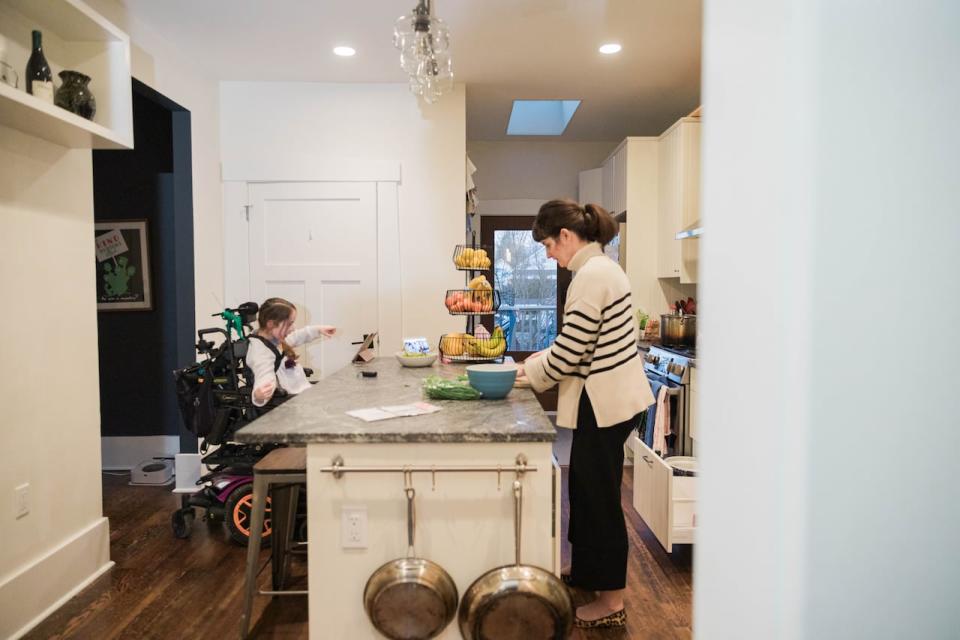
Hilary Thomson and her daughter Cora at home in Vancouver. Thomson says a number of parents from schools across the district have raised concerns about staffing levels for workers supporting kids with learning designations and individual education plans. (Gian Paolo Mendoza/CBC)
DPAC and a group of five unions issued open letters this month highlighting understaffing concerns: particularly of SSAs and what they say are growing "failures to fill" — absent staff not being replaced appropriately, such as classroom or enrolling teachers by substitute teachers.
They say too often it's resource teachers — who focus on supporting students, including those with learning designations — backfilling absent classroom teachers, not substitutes.
The Vancouver School Board denies many of the allegations, however. It said a resource teacher doing a classroom teacher's job is a last resort.
It said the vast majority of staff absences are filled by substitute teachers, hiring is constant, kids are always with qualified educators and graduation rates for kids with special needs is improving.
'Failure to fill' count
The teachers' unions tallied self-reported "failure to fill" instances from October to December.
At one-third of elementary schools, they counted 1,298, including 972 where resource teachers filled in.
"Teachers are afraid to take a sick leave because … one of their colleagues will be told to cover their class and the students will lose service," said Jody Polukoshko, president of the Vancouver Elementary and Adult Educators Society. "That's not fair."
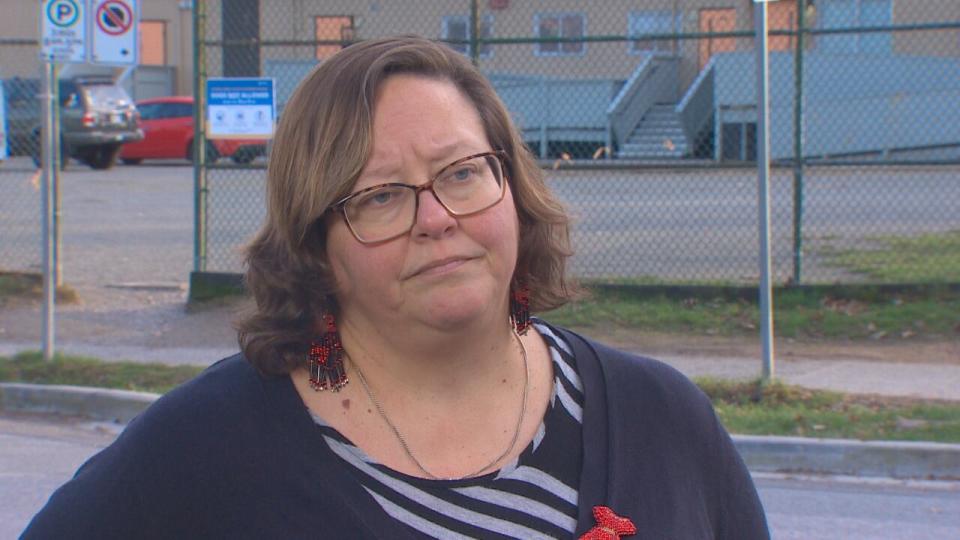
Jody Polukoshko with the union representing Vancouver elementary teachers believes 'failure to fill' situations are happening more often than the school board admits. (Jim Mulleder/CBC)
DPAC, in its letter, also decried resource teachers being used as backfill, arguing it's exacerbating the need for SSAs.
"Without this essential support, students with disabilities are being left behind," the letter read.
President Warren Williams with CUPE 15, which represents SSAs, believes understaffing is leading to violence when students with behavioural problems act out and support workers aren't there to de-escalate.
"It's ongoing and it is getting worse."
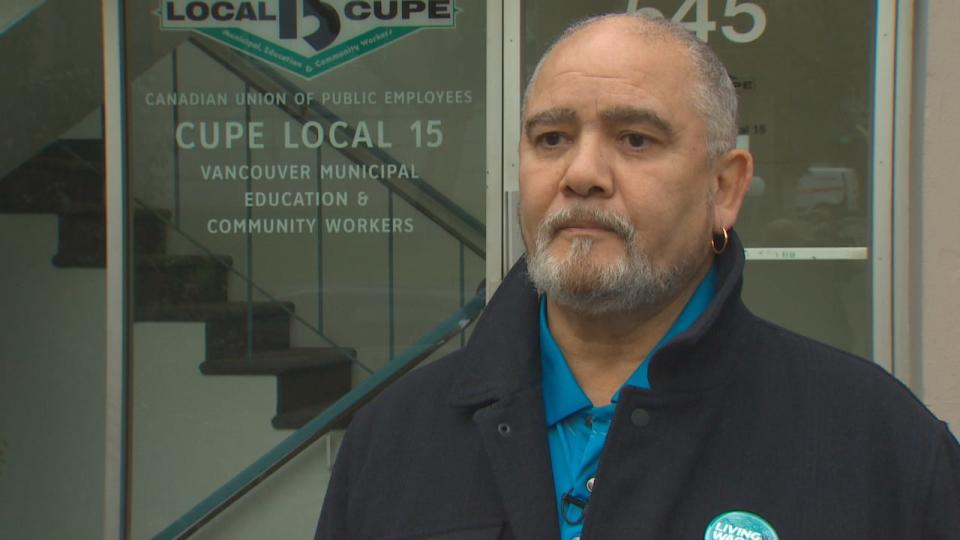
Warren Williams said divided attention of support workers is bad for staff and students in need of help. (Jim Mulleder/CBC)
VSB says some union claims 'inaccurate or out of context'
The Vancouver School Board (VSB) is pushing back against many of the letters' claims. It said the union letter "included many details that are inaccurate or out of context" and the "vast majority" of staff absences are filled via on-call staff.
Calling on a resource teacher, instead of a substitute teacher, is a "last resort," it said.
"Unlike many of the other 59 school districts in the province, there are qualified teachers and other educators with all students each and every day," a spokesperson wrote in an email.
"Like all sectors, there are labour challenges, and we are actively hiring every single day."
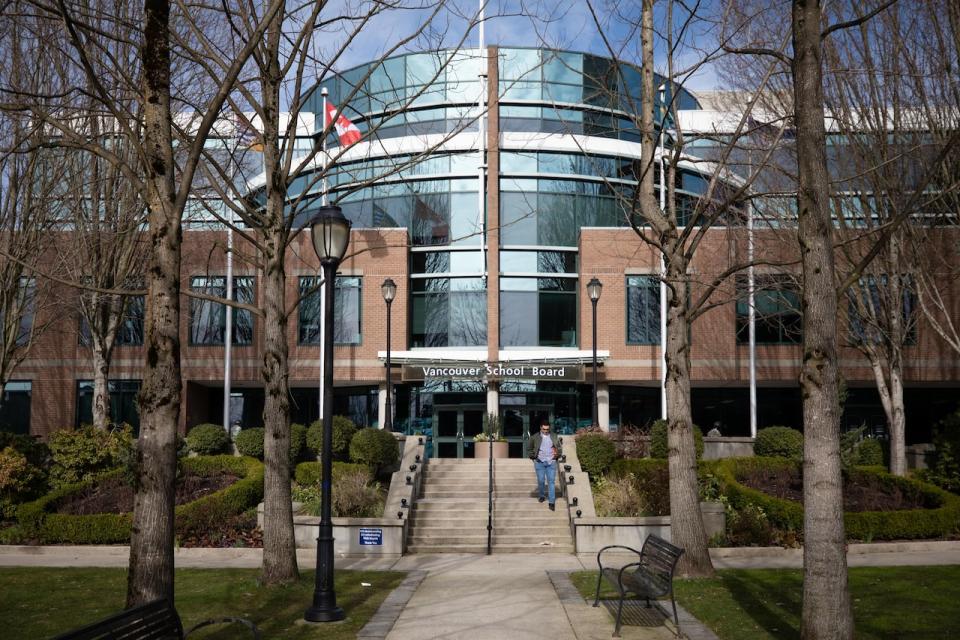
A spokesperson for the Vancouver School Board pushed back on many of the allegations raised by the unions and trustee. It says it is continuously hiring, including for SSAs — including 14 so far this year — and 'failure to fill' situations for absent teachers are rare. (Maggie MacPherson/CBC)
The school board insists it is constantly hiring new staff and unstaffed jobs are rare. For instance, there are 40 more elementary teachers working this year compared to last.
However, even a school board trustee is asking questions.
Jennifer Reddy says she's heard about parents' staffing concerns and she and her fellow trustees are somewhat in the dark about staff absences as the district approaches its annual budgeting process, which is "extremely concerning."
"Parents have been asking me if decisions have been made about a reduction of support staff," Reddy said, adding she's not aware of any formal staff reduction decisions.
The district adds while it has "utmost respect" for the unions, a number of issues they raise are linked to collective bargaining which is set to resume across B.C. school districts.
It suggested commute times and cost of living may be why some workers are choosing to work elsewhere.
While it acknowledges more reports of violence with a new online reporting system launched, the number of injuries, medical attention required and staff time lost are down.
It added there are teams in all schools able to support students with special needs and the secondary graduation rate for those students improved last year.
And while Reddy claims unanswered questions, the district says its superintendent has briefed them several times on staffing and recruitment, "which includes a labour relations matter that the Board cannot discuss while underway, respecting that process."
The school board budget is due in April. Polukoshko and Williams say their unions' collective agreements expire in June 2025.

